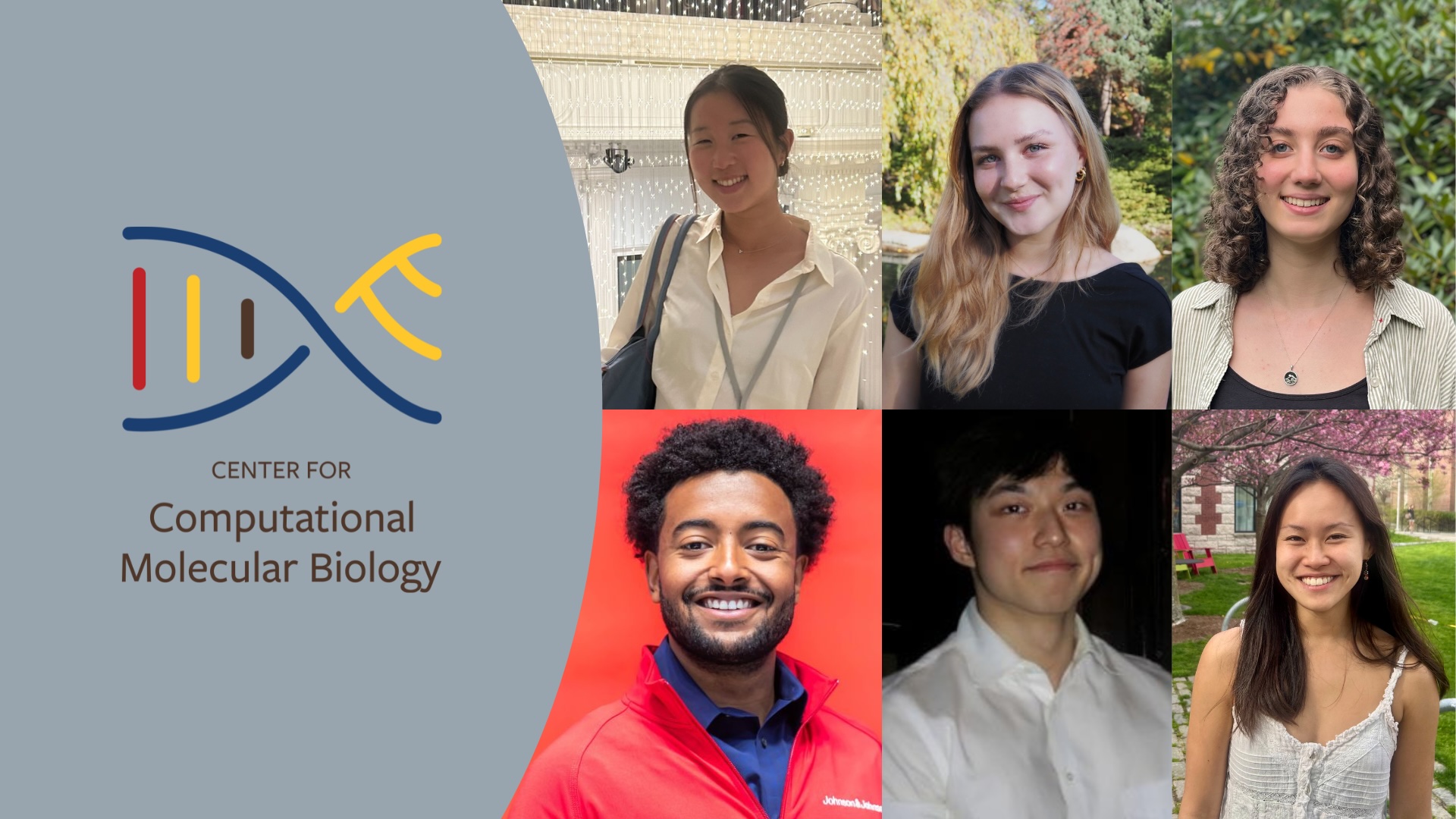
2025 CCMB Graduating Student Spotlights
CCMB is home to undergraduate and doctoral academic programs, each with dynamic and inspiring students. Hear from some of our graduating students and learn about their journeys at Brown.

Computational Biology Undergraduate Students
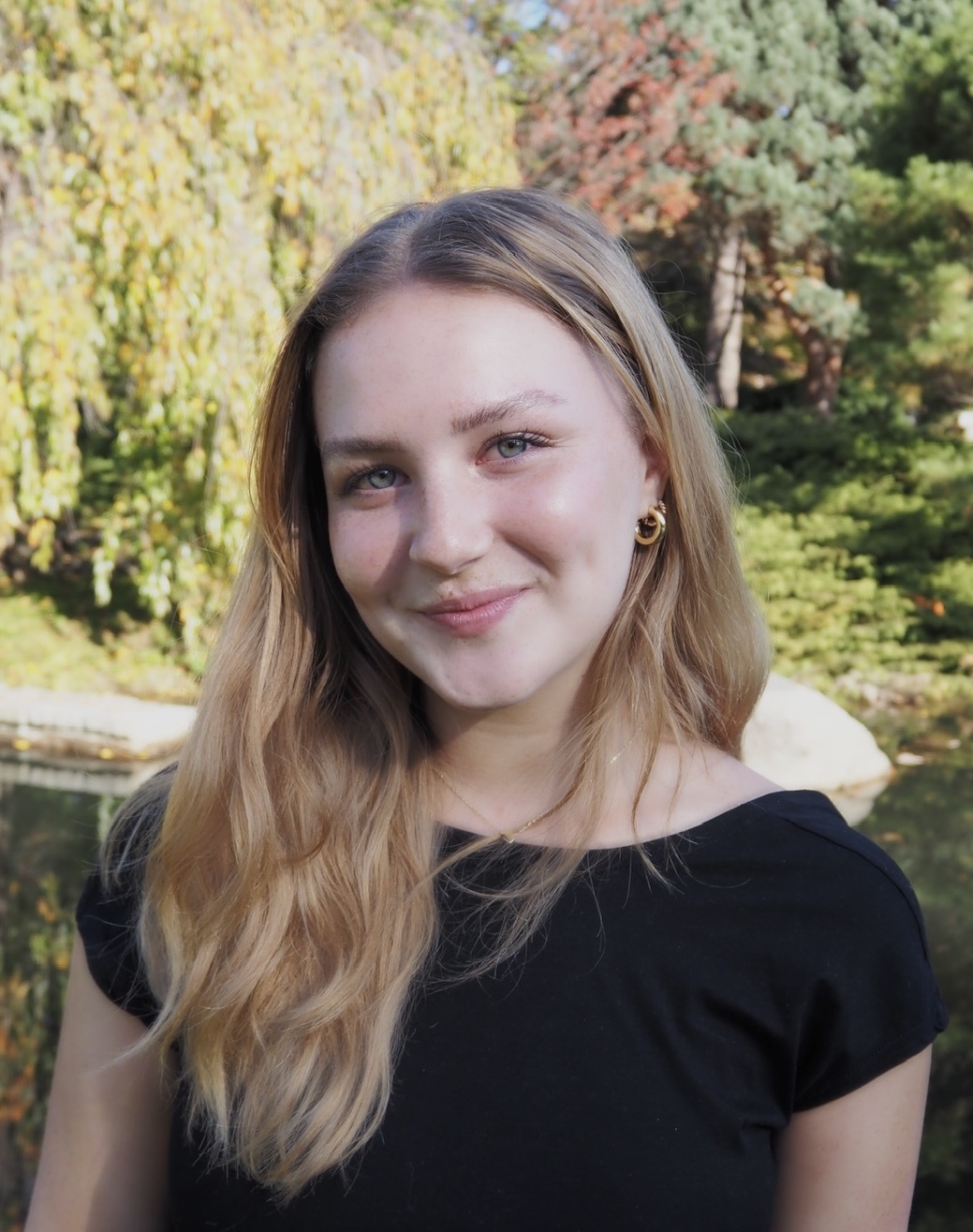 Fields of Interest:
Fields of Interest:
My main research interests have been in breast and ovarian cancer bioinformatics, spatial transcriptomics, and deep learning applications in genomics.
What drew you to Computational Biology?
I really love the combination of computation based problem-solving with the complexity of biologically based challenges. I’m also really motivated by the potential to make a meaningful impact in human health on a larger scale.
What has been favorite course at Brown?
One favorite is Human Genetics and Genomics with Prof. Eric Morrow—I took it sophomore year and have TAd it for the past two. It’s a seminar that blends key discoveries in genetics with powerful human stories. I’ve also really enjoyed Deep Learning in Genomics with Prof. Ritambhara Singh that I’m taking this semester.
How have your academic interests changed over the course of your time at Brown? I came to Brown planning on studying biomedical engineering on the pre-med track. Through the computational biology concentration and research both on and off campus, I realized that comp bio research is what I’m most excited about and want to continue to pursue.
What has been your favorite part of being a student at Brown?
This may be a cliche answer but the open curriculum! Having the flexibility of the open curriculum allowed me to try a wide array of interdisciplinary classes. Additionally, I was able to study abroad in Vietnam, South Africa, and Argentina focusing on comparative field work in maternal health. While these experiences weren’t directly part of my comp bio requirements, they have significantly shaped the kinds of research I’m interested in now.
What kinds of research experiences have made an impact on your time at Brown?
During my time at Brown, I conducted ovarian cancer research with Dr. Alper Uzun in the Genomics & Machine Intelligence Lab, interned at Microsoft Research focusing on protein language models, and participated in the bioinformatics REU at BU. These experiences gave me a clearer picture of a research career, allowed me to explore different areas of computational biology, and connected me with incredible mentors.
Outside of the classroom or the lab, what has shaped your time at Brown?
I’ve been involved in RISE global health leadership, Brown Market Shares, and co-directed Attitude Dance Company. I’ve loved how interdisciplinary the Brown community is—every group I’ve joined has connected me with people who are blending really unique interests and skills.
Who has mentored you throughout your degree?
I’ve had so many great mentors throughout my time at Brown! A special thank you to Dr. Alper Uzun, Dr. Ece Uzun, Dr. Eric Morrow, Dr. Sarah Alamdari at MSR, and Dr. Ruben Dries at BU.
What is next for you?
Next year I’ll be joining AstraZeneca’s rotational grad program in Data Science and AI. Following completion of the two-year program, I’m hoping to pursue a PhD in computational biology.
What advice would you give to incoming students?
Be open to trying new things and say yes more often! There are so many opportunities to discover a new interest at Brown, if you’re open to exploring them. Don’t be afraid to take a class that has absolutely nothing to do with your degree or go to a workshop where you have no experience. Some of the most meaningful learning comes from new experiences and conversations with people you wouldn't have met otherwise.
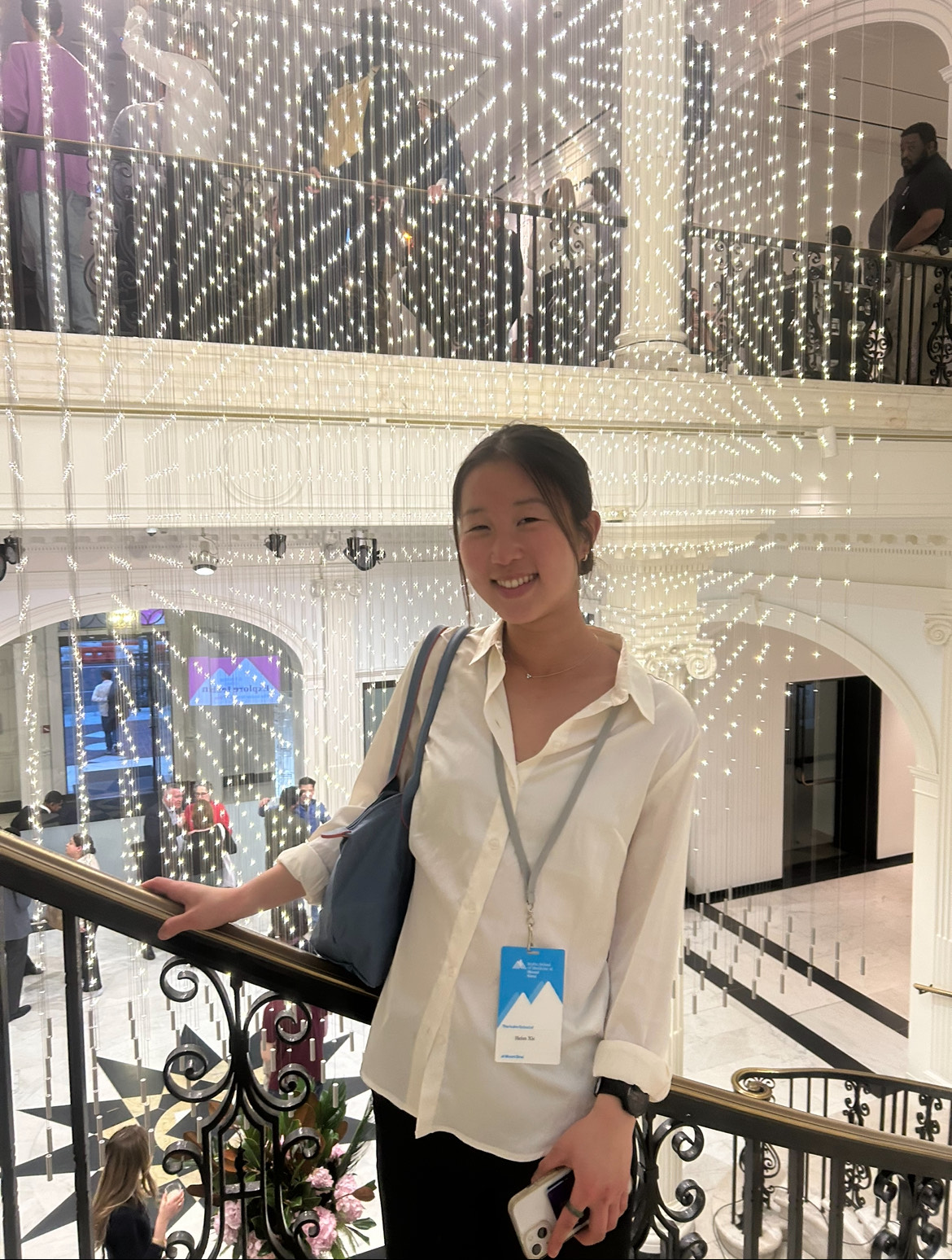 Fields of Interest
Fields of Interest
Computational oncology, with a particular focus on pediatric neuroblastoma.
What drew you to the field of Computational Biology?
I was drawn to computational biology because it allows me to bridge discovery and impact—using data to uncover biological insights, and ultimately applying those insights to improve patient outcomes. My first major research experience, working on DNA methylation in neuroblastoma patients at St. Jude, showed me the power of computational tools in tackling complex pediatric diseases. Since then, I’ve committed myself to exploring how we can translate computational findings into clinical advances.
How have your academic interests changed over the course of your time at Brown?
While I started by focusing on biology and computer science, I’ve come to value the perspectives that math, engineering, and public health bring to understanding and addressing pediatric cancer. Each field has helped me see oncology from a different angle—whether through building better models, understanding systems holistically, or considering real-world disparities in care.
What has been your favorite course at Brown?
Surprisingly, it was a class on contemporary US short fiction taught by Professor Ralph Rodriguez that I shopped on a whim. The course deepened my appreciation for narrative and the human experience—something that informs how I approach both medicine and research.
What kinds of research experiences have made an impact on your time at Brown?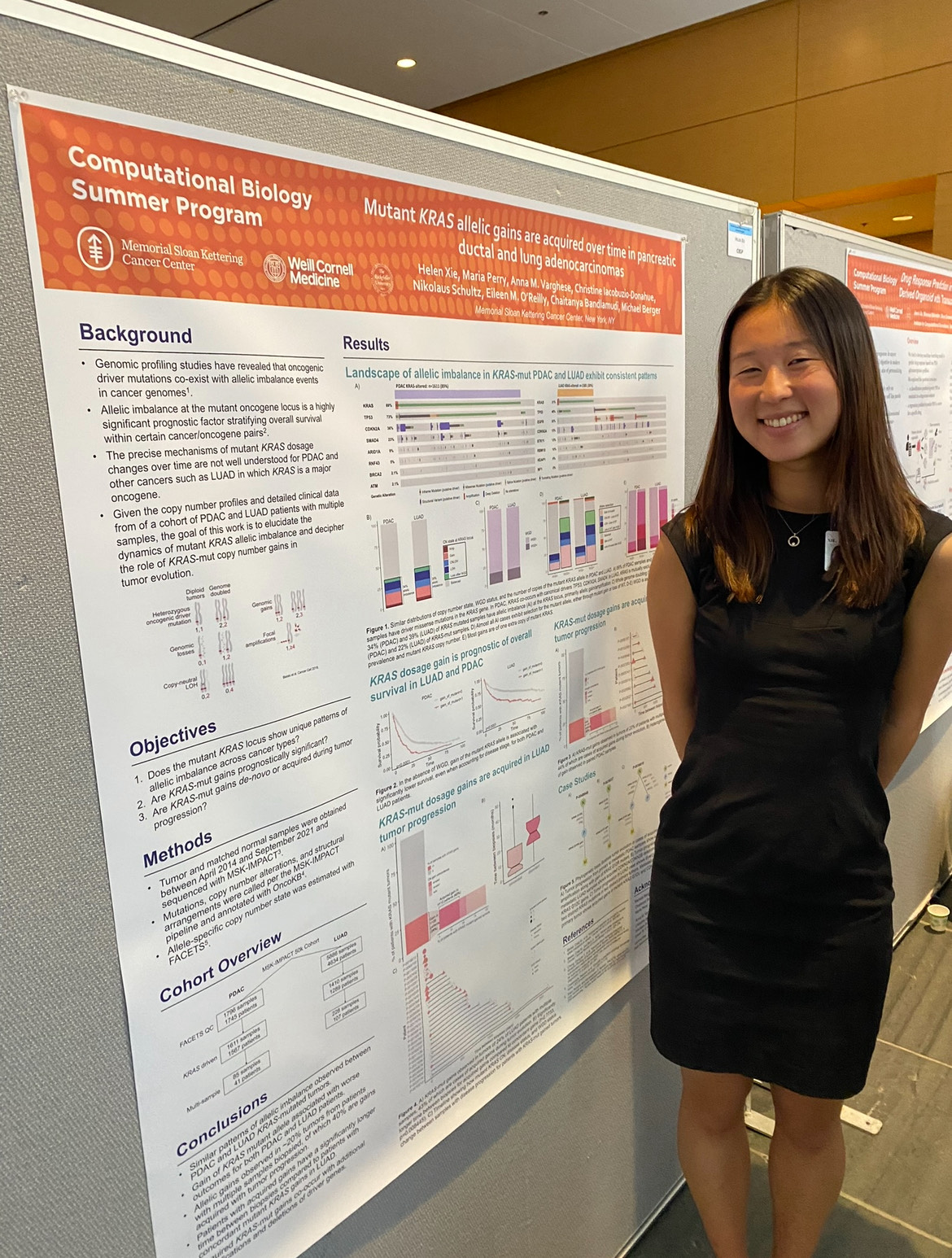
My time at Brown has been shaped by a commitment to integrating research with real-world impact, especially in pediatric oncology. I’ve been a part of the Crawford lab since the summer before my freshman year, where I developed and published Multioviz, a tool for in-silico hypothesis testing of gene regulatory networks. I’ve also had the privilege of working at institutions like St. Jude Children’s Research Hospital and Memorial Sloan Kettering Cancer Center, as well as contributing to research at Brown’s Crawford Lab. But what’s mattered most is how each of these experiences has kept me grounded in the lives behind the data.
At St. Jude, I stepped onto campus as the youngest intern/only freshman in their Pediatric Oncology Education. I spent my mornings developing a convolutional neural network to predict promoter-based gene activity in neuroblastoma patients—while my afternoons were spent volunteering at the St. Jude cancer camp, surrounded by kids whose laughter and strength defied the weight of their diagnoses. In the evenings, I shadowed in the palliative care clinic, where I saw just how deeply care could extend, even when treatment options ran out. One moment that stayed with me was watching two brothers nap together in a hospital bed while their doctor arranged a final zoo visit—reminding me that medicine is not just about cures, but also about comfort and humanity.
At Memorial Sloan Kettering, I built on this foundation, working on projects from pancreatic cancer genomics to neoantigen-directed TCR therapies. While researching fusion peptide sequences in the Berger Lab, I was also shadowing at MSK Kids—where I met a young girl in treatment who, coincidentally, became my camper later that summer when I volunteered at the Hole in the Wall Gang Camp. The continuity of seeing her in both clinical and camp settings reminded me that patients are never just patients. They’re full people with rich lives and stories—stories that I want my research to ultimately support.
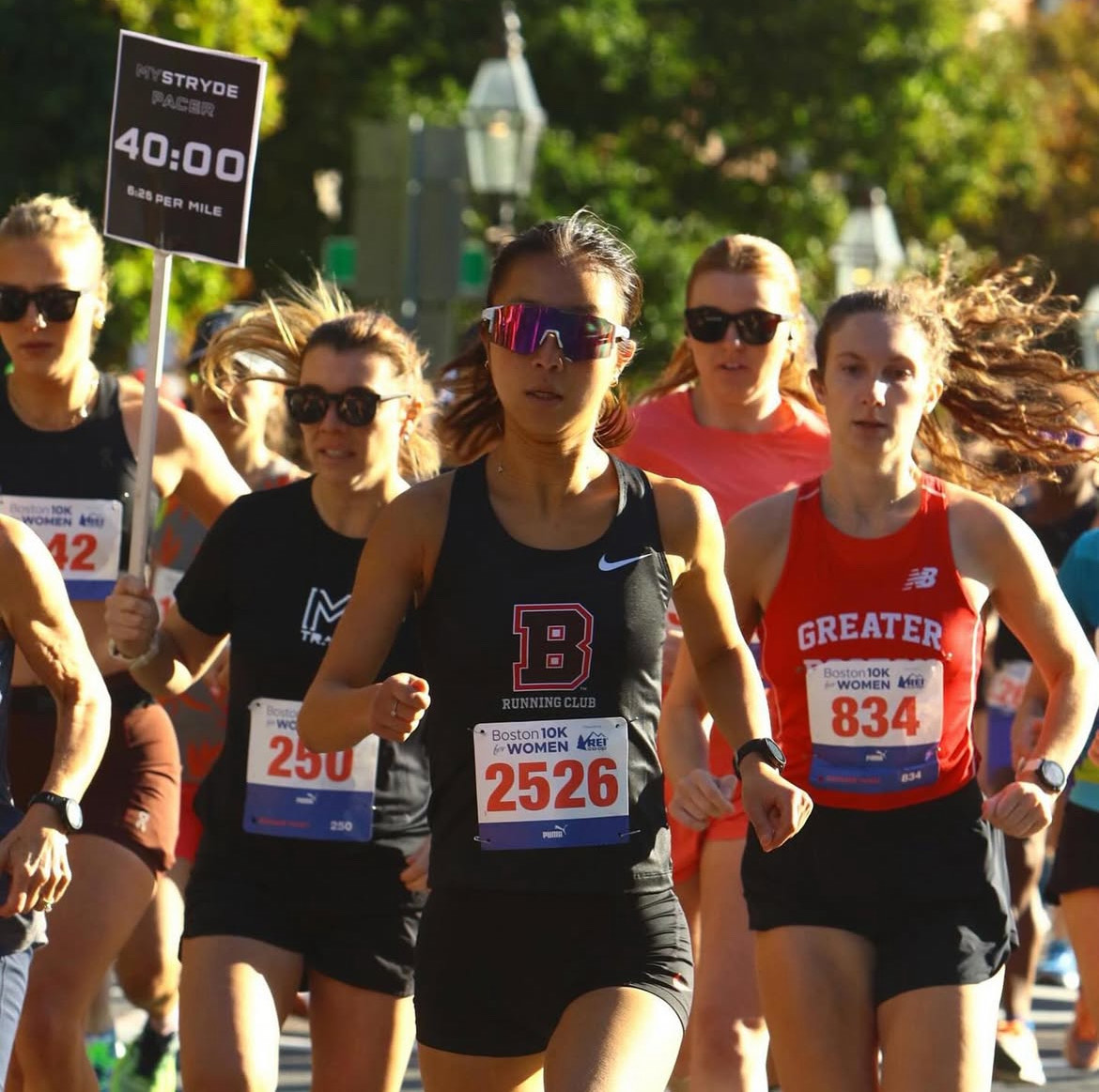
Outside of the classroom or the lab, what has shaped your time at Brown?
Outside of the lab, I lead a 501(c)(3) nonprofit, Fiction for Kids, where we write and donate personalized stories to children in hospitals, foster care, and underserved communities. Many of the children I’ve met through St. Jude and Hole in the Wall inspired my writing, especially When Poppy Lost Her Petals, a story about resilience and shared strength. Leading this organization has been one of the most meaningful parts of my college journey, combining my love for storytelling with my commitment to pediatric care.
I'm also extremely passionate about running. I've been on Brown's running club since my freshman year, had a brief stint with the varsity team, and now train with the Rhode Island Track Club, a semi-professional team based out of Providence. I love running because it is something I do purely for myself. I'm able to set wild goals, and then do everything I can to achieve them. Running has taught me not only discipline, but to never count myself out. More importantly, it has taught me that it is ok to fail, and that every failure is a lesson that makes you stronger.
What has been your biggest challenge over the last four years?
One of the biggest challenges has been learning to balance rigor with rest, and to make time for myself and my nonnegotiables. But it’s also made me more intentional with my time and more appreciative of the people around me.
What has been your biggest accomplishment?
My proudest accomplishment has been growing Fiction for Kids into a multilingual, multi-format platform that’s donated over 600 personalized stories to children worldwide. Knowing that a story I helped create brought comfort or joy to a child during a difficult time has been beyond meaningful.
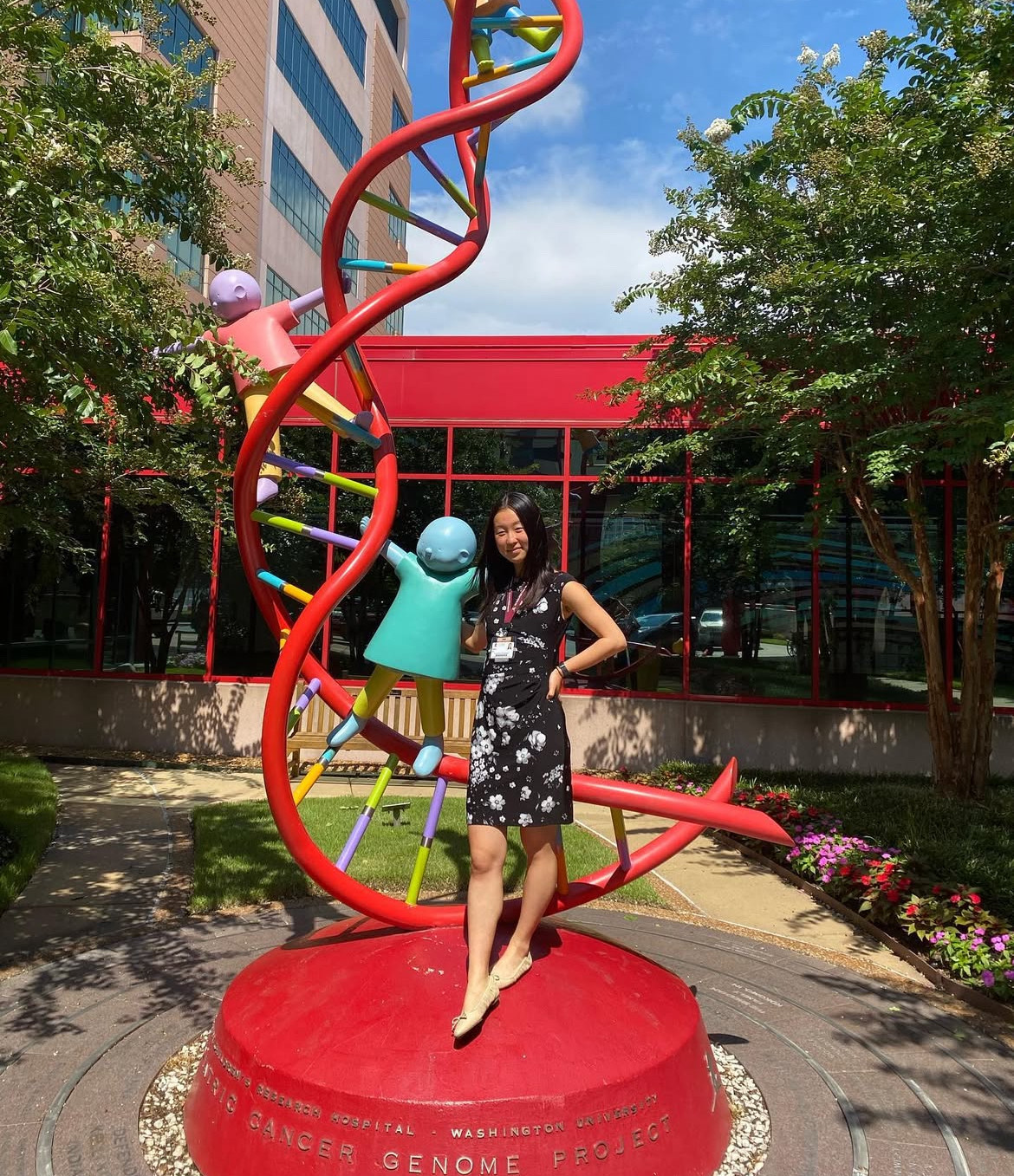
Who has inspired you throughout your degree?
Dr. Lorin Crawford has been an incredible mentor—both for his brilliance in quantitative cancer genomics research and his commitment to the students he mentors. Working in his lab not only sharpened my research skills but also showed me what thoughtful, inclusive scientific leadership looks like. In my senior year of high school, I invited him as a guest on a speaker series for the after school STEM engagement program I ran. I was so inspired by his story that after being accepted to Brown, I reached out to him about joining his lab. I’m incredibly grateful that he took a chance on me.
What has been your favorite part of being a student at Brown?
The communities I’ve built—from the friends I made on day one to the mentors and labmates who’ve challenged and supported me.
What is next for you?
I’ll be starting medical school at the Icahn School of Medicine at Mount Sinai, where I plan to continue my research in computational oncology while getting involved in clinical care and community outreach—especially with programs like 預‧善防, which educates NYC’s Chinese communities on cancer prevention. I’ll also continue leading Fiction for Kids, expanding it to reach children in East Harlem and beyond.
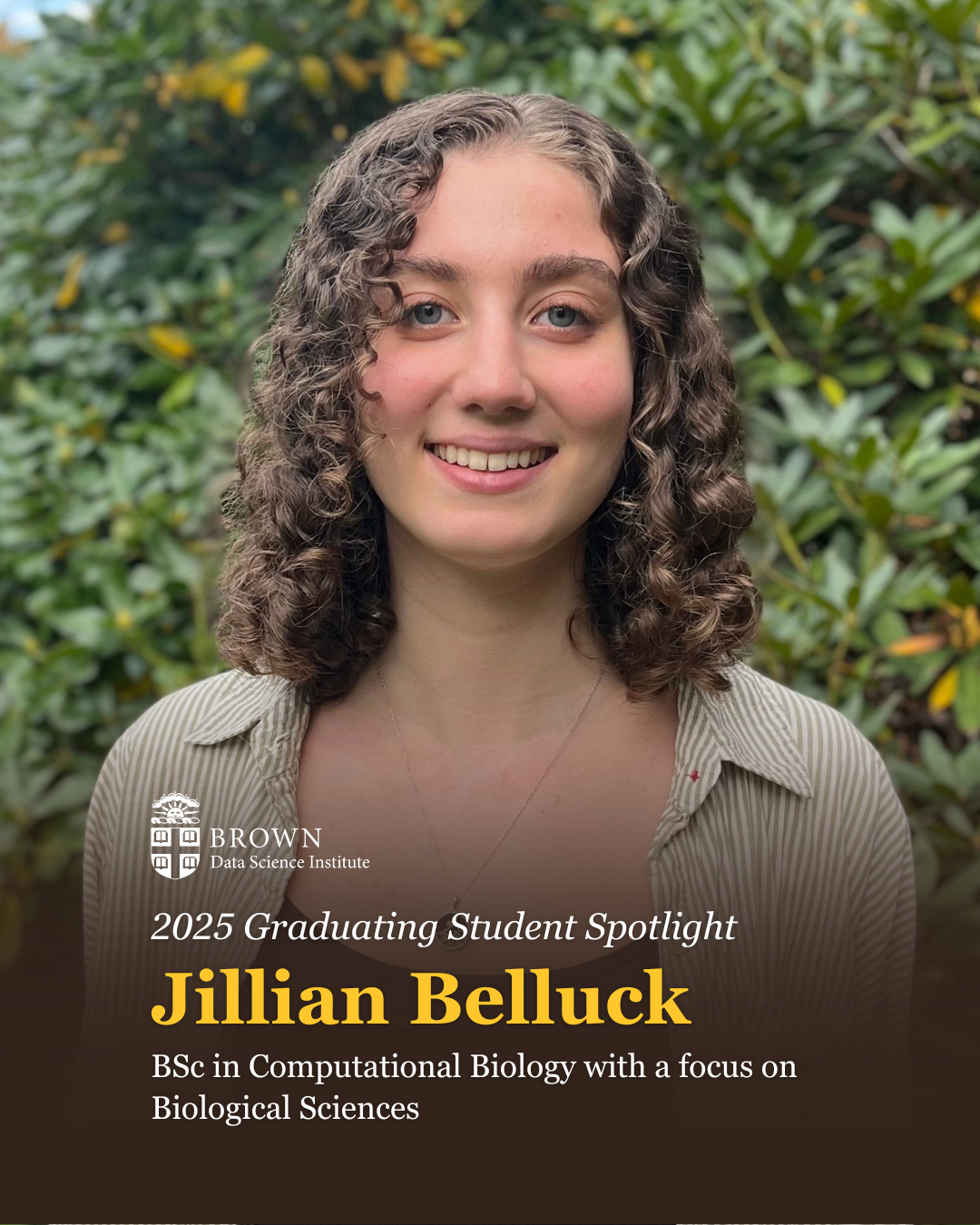 Fields of Interest
Fields of Interest
I am broadly interested in clinical applications of genomics.
Why did you decide to pursue the Computational Biology concentration?
I was drawn to computational biology by the possibility of using genetic data to inform medical treatment and improve people’s lives. Although I had no background in computer science before coming to Brown, I quickly developed an appreciation for how powerful computational tools can be in revealing insights about genomics.
What has been your favorite course at Brown?
My favorite course has been Human Genetics and Genomics (BIOL1545/2545), taught by Dr. Eric Morrow. In addition to giving me the skills to critically read primary literature in genomics, the course introduced me to genetic counseling and encouraged me to think deeply about the most important ethical considerations in the field of genetics.
How have your academic interests changed over the course of your time at Brown?
I entered Brown with a broad interest in "bioinformatics", although I don't think I fully understood what that term meant. By taking courses in areas like pathogenomics, biomedical informatics, population genetics, and conservation biology, I’ve had the chance to explore genetics and genomics from many different angles. These experiences helped me realize my passion for bridging scientific discovery and patient care, which is what drew me to genetic counseling.
What extracurricular experiences have shaped your time at Brown?
Music has always been a big part of my life, and I’ve been lucky to continue that at Brown. Over the last four years, I’ve played oboe and flute in the Wind Symphony, the Brown Band, and in the pit orchestras for a number of student musicals. These groups have given me a creative outlet, a community, and some of my closest friends. They've also shown me how to play music just for fun, which is something I hope to carry with me after college.
What is next for you? This can include professionally or personally!
After graduation, I'm headed to Kansas City, where I'll be working as a Computational Scholar at the Stowers Institute for Biomedical Research. I’ll also continue to explore the field of genetic counseling, and I hope to apply to master’s programs in a few years.
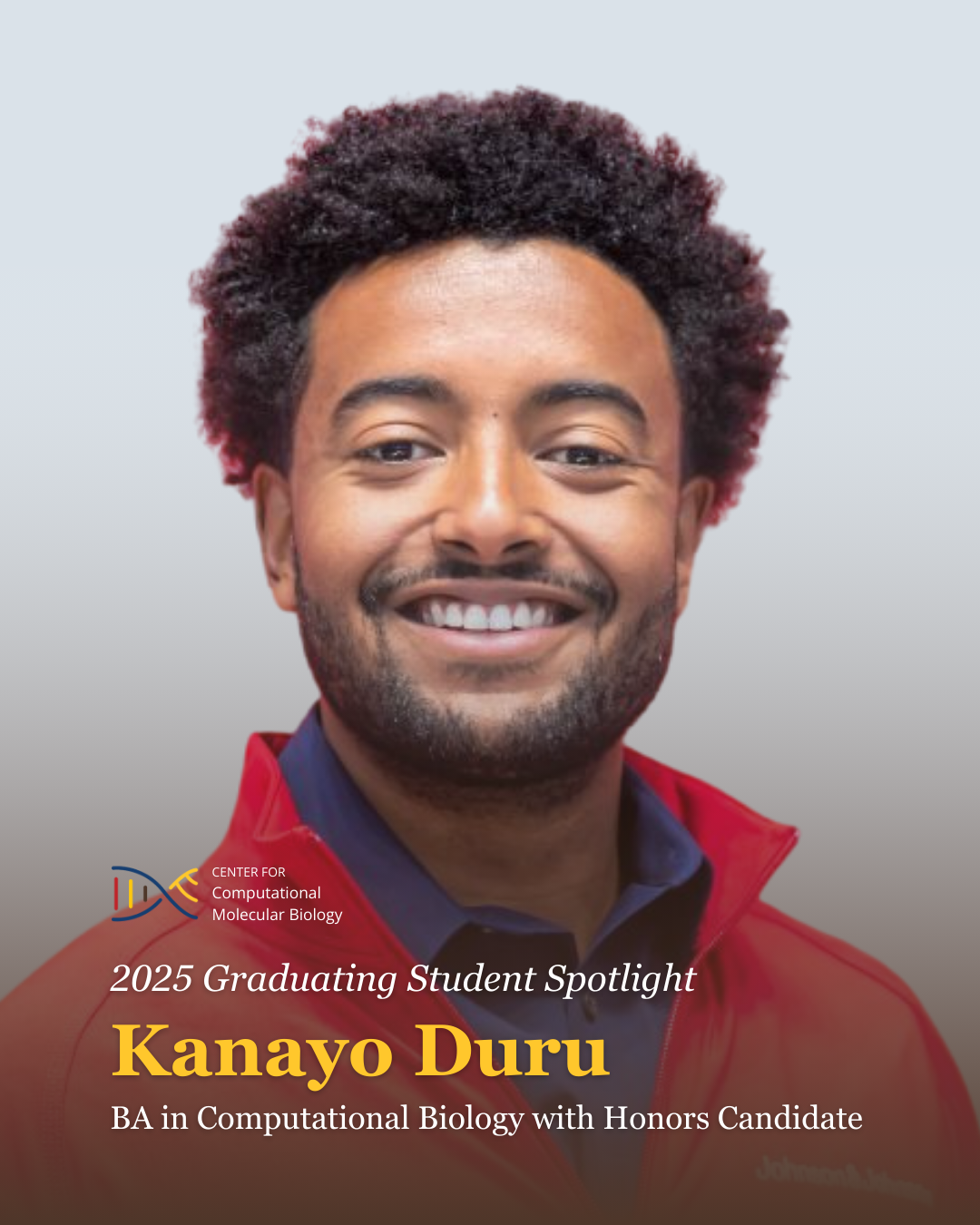 Fields of Interest
Fields of Interest
The field I have most experience with is oncology, both in research and knowledge. I am writing my honors thesis on oncology and have participated in several oncology-based summer internships.
What drew you to the field of computational biology?
It was actually my first internship that made me want to pursue computational biology. I was working in a lab at the National Cancer Institute, and was completely amazed about how integrated computational techniques and modeling were in the drug discovery and scientific process. Inspired by that, I decided to take CS15 the next semester as an intro to Computer Science and enjoyed it so much that I switched concentrations from Biochemistry into Computational Biology.
What has been your favorite class at Brown?
Probably Principles of Immunology, which I took in my freshman year. That was what got me so interested in oncology and specifically immunotherapy as a potential treatment for cancer. I feel like immunology is very understated, but permeates almost every aspect of human research and medicine. As I continued to study here, I also started to pursue some classes in public health, and became very interested in global health equity research.
What is your favorite part of being a student at Brown?
My favorite part of being at Brown is definitely the people. I have met so many passionate and incredibly smart classmates who I am able to connect and work with. The communities I have formed have been key to my exploration of these new fields.
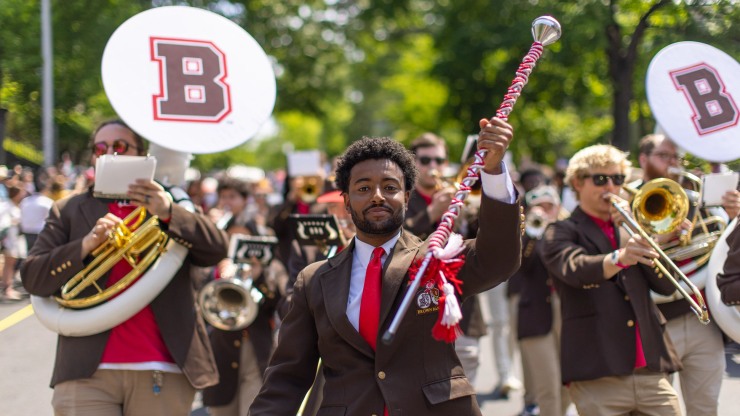
What extracurricular experiences have made an impact on your time at Brown?
I think one of my biggest goals at this stage in my life is to explore as much as I can, and that has led me into a lot of different activities. All of my research opportunities, both in the summer and at school have had an impact on how I see the world. One that was especially important was an UTRA where I was able to travel to Rwanda to work on a global health project. I think that was really what sparked my interest in global health.
In addition, I am happy that I am able to balance a more STEM-focused course load with my time playing in and leading the Brown University Band. Being able to express myself through music has always been a core part of my identity and the band has truly allowed me to follow that dream, and also help give others that space through leadership. The accomplishment that means most to me from my time at Brown was probably becoming the first African-American head student conductor of the Brown Band.
What has been your biggest challenge in the past four years?
I think my biggest challenge has probably been the completion of my thesis. There were many moments where I was ready to give up, but I kept working.
What is next for you?
After college, I have plans to leave for Gambia for a year, working with the Peace Corps as a Community Health Facilitator. I am incredibly excited for the work I will be able to do in supporting health around the world. After that, I hope to attend medical school and pursue a degree in medicine.
What advice do you have for incoming students?
Try as much as you can. Let your curiosity drive you to find new passions, and never count yourself out of anything because you don't think you are "qualified" enough.
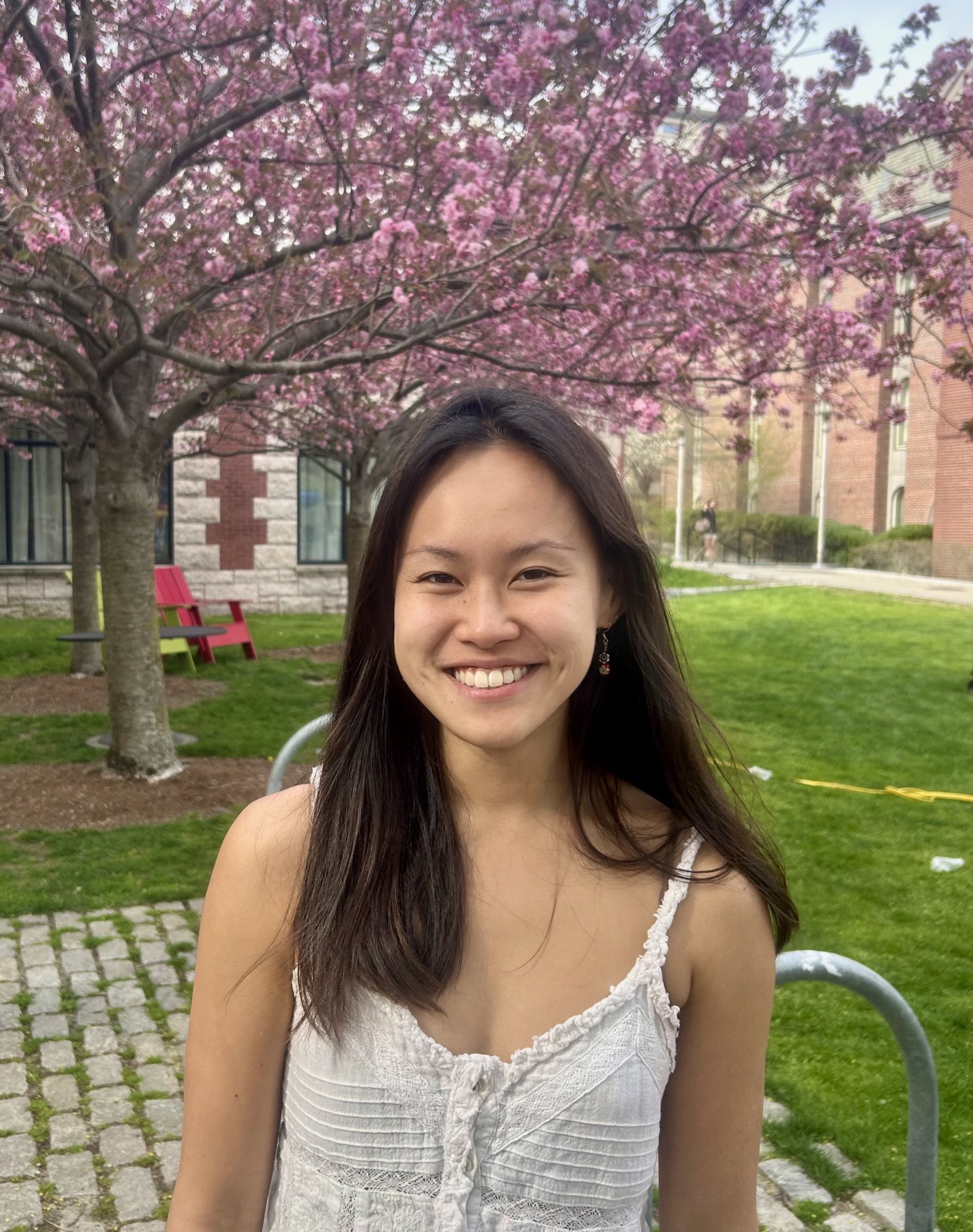 Fields of interest
Fields of interest
Machine learning for large clinical datasets and applications of large language models in medicine
What drew you to the field of Computational Biology?
I was torn between studying biology because I'm fascinated by the human body and computer science because I love solving puzzles. I didn't realize this little intersection of the two fields existed, but I'm so glad I found it, and I love how interdisciplinary it is.
What has been your favorite course at Brown?
There's a few that stand out: CLPS1291 Computational Methods for Mind, Brain and Behavior with Thomas Serre, NEUR1630 Big Data Neuroscience with Alex Fleischmann, and CSCI2952G Deep Learning in Genomics with Rithambhara Singh. They were the perfect blend of computer science and biology.
What has been your favorite part of being a student at Brown?
The people; everyone is so multidimensional. It's rare to meet someone "boring," without a cool story or passion. And what they say about collaboration is real–it always feels like people want to genuinely help each other rather than compete.
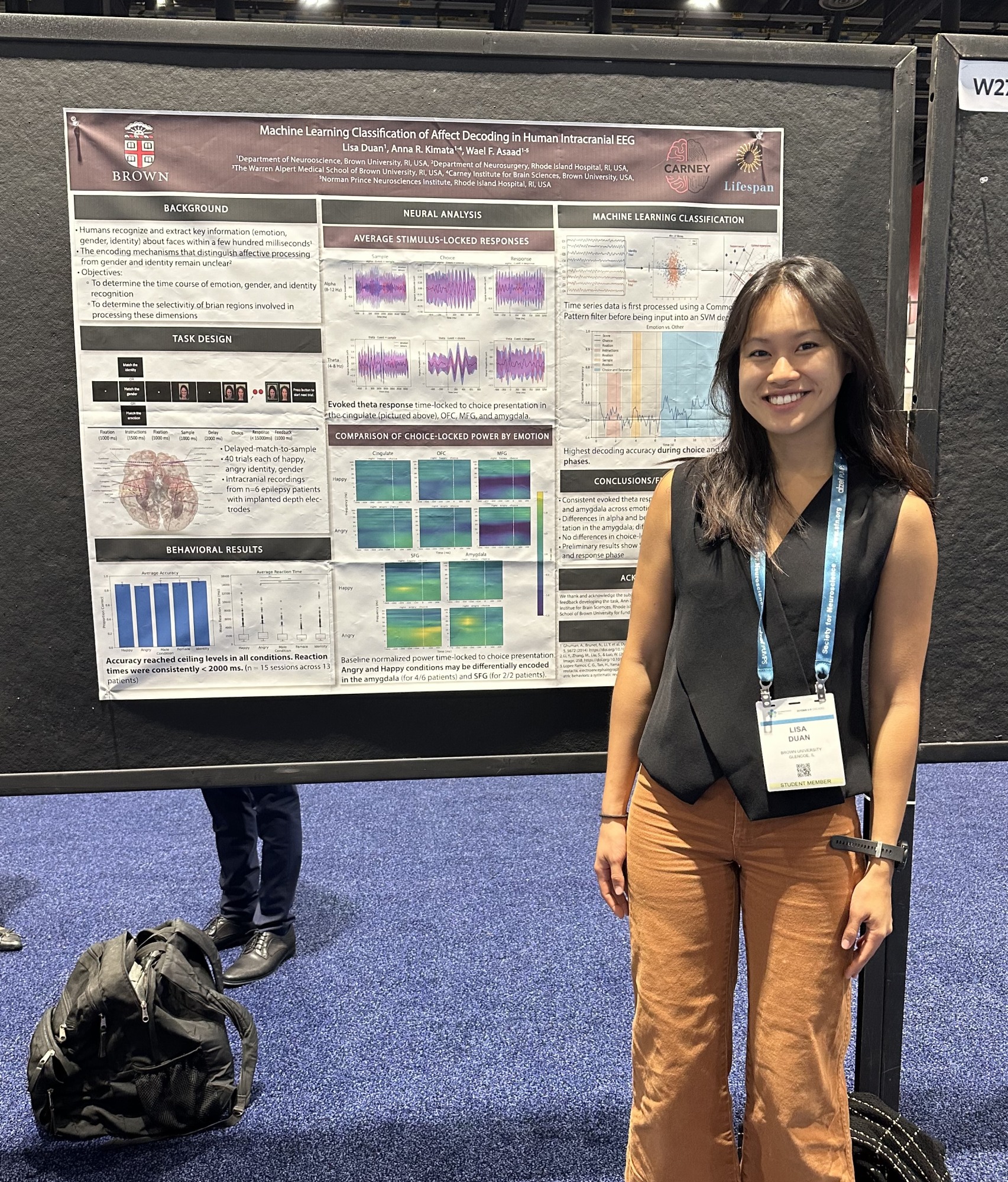 What research experiences have shaped your experience at Brown?
What research experiences have shaped your experience at Brown?
I first got interested in computational research through the Systems Biology Internship at Harvard Medical School the summer after freshman year. I worked on mathematical modeling of learning but slowly realized it was too theoretical for me.
That led me to the Asaad Lab at Brown, where I worked in computational neuroscience. I stayed to work there the next summer with an UTRA to code an intracranial electrophysiology task to understand emotion recognition. I loved working with patients in the epilepsy monitoring unit and found the clinical setting and simply chatting with patients incredibly rewarding. I spent the next summer doing machine learning for kidney function prediction through the Summer Institute in Biomedical Informatics internship also at HMS.
Now for my honors thesis, I'm using machine learning to predict surgery response outcomes in a disease called normal pressure hydrocephalus, so I think my interests have finally converged at this intersection of using machine learning on large clinical datasets for diagnosis and outcome prediction.
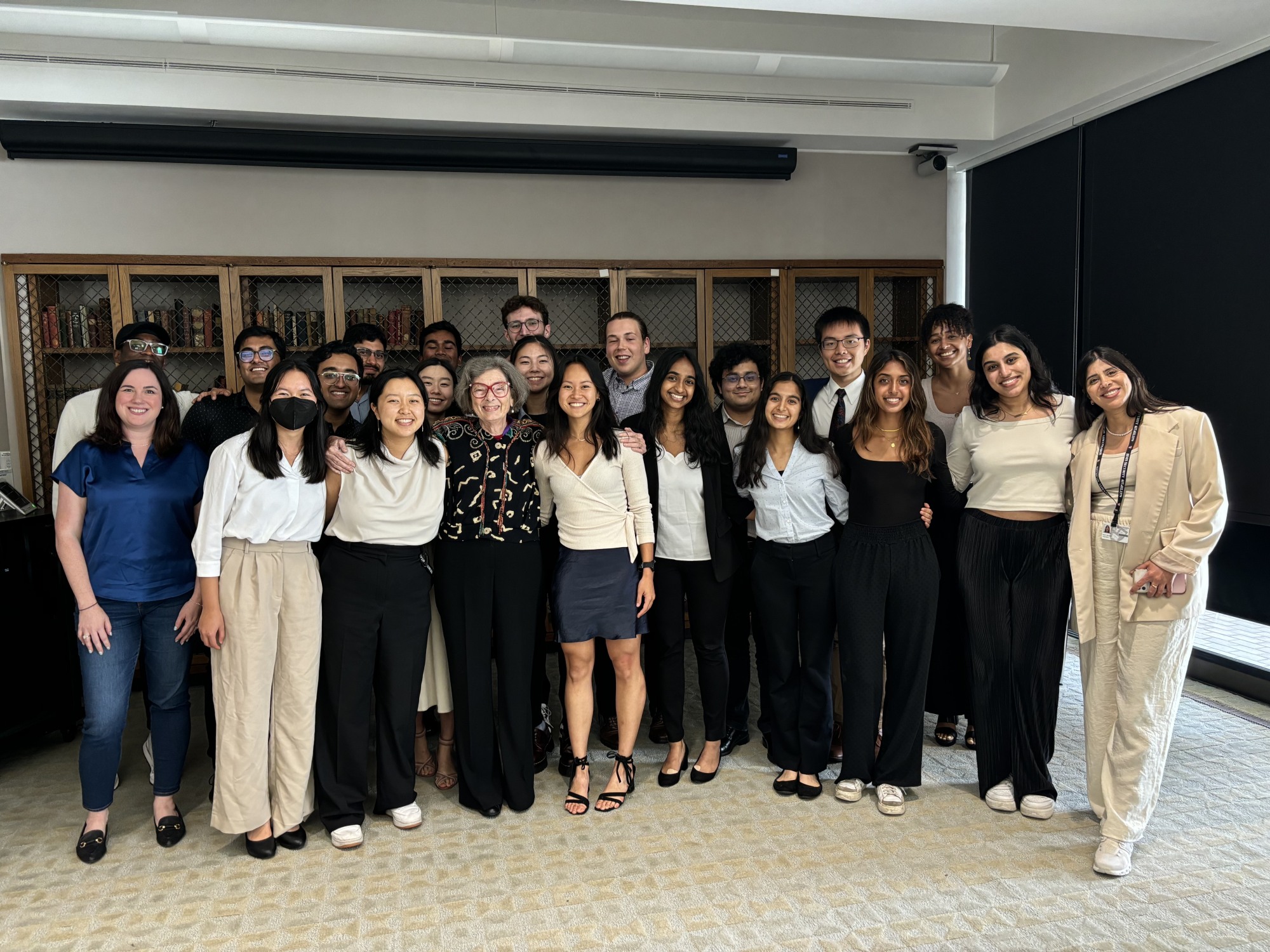
What has been your biggest challenge during your time in college?
It was quite a challenge figuring out what I wanted to do. I spent a long time deciding between a PhD, medical school, or something completely different. Eventually, I realized MD was the right path for me. I want to be able to clearly explain complex ideas and help other people understand them.
Who has inspired you throughout your degree?
Two mentors stand out: Sorin Istrail and Alexander Fleischmann. Sorin's class first sparked my love for computational biology, and he has been an incredible source of guidance since. Alex has been the best undergraduate thesis advisor I could ask for, giving me independence while offering invaluable support.
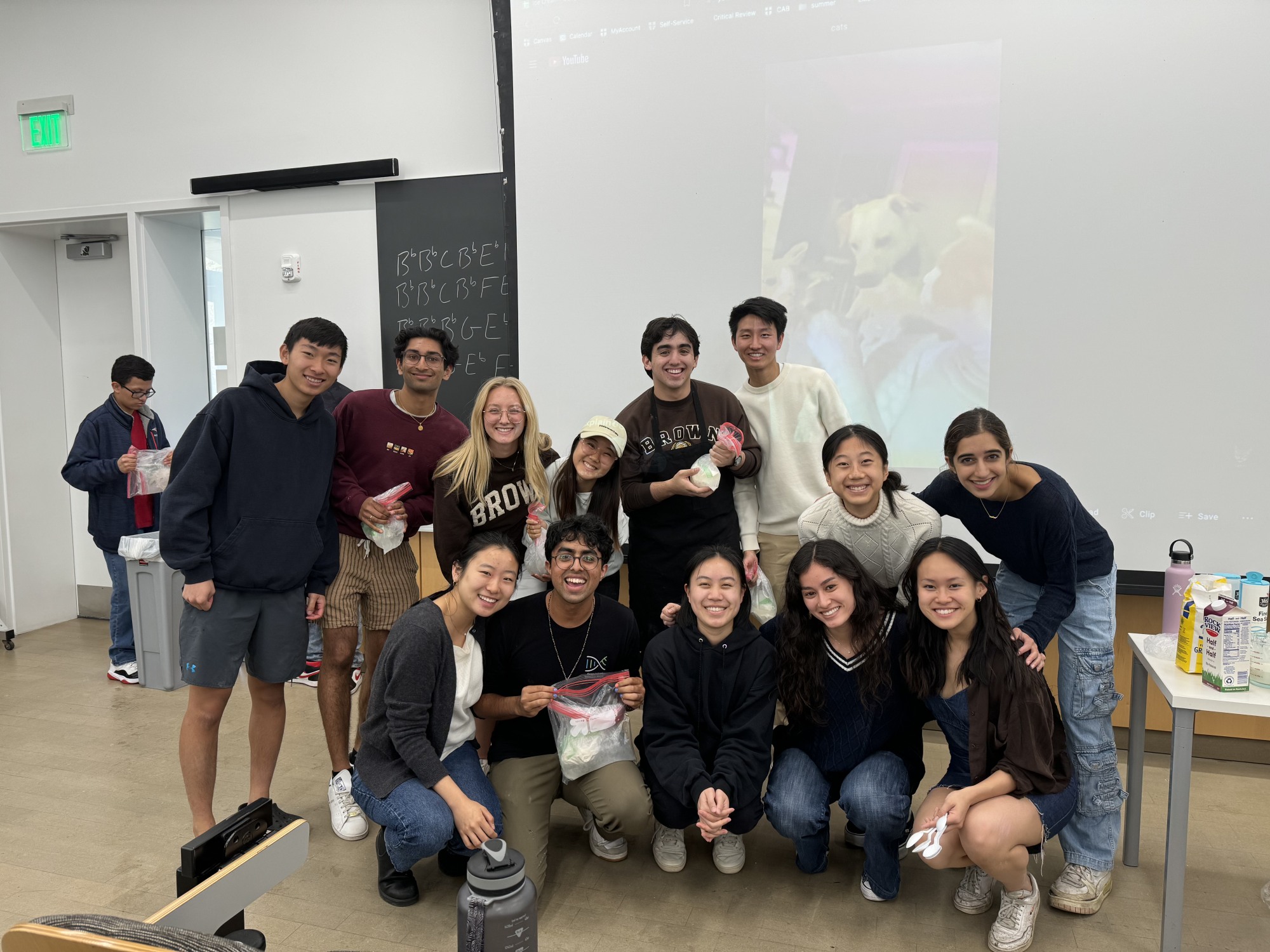
What is next for you?
I'll be going to medical school at Mount Sinai in New York through the FlexMed program! My ultimate goal is to be a practicing physician while continuing to conduct research at the intersection of machine learning and medicine at an academic institution.
Outside of academics, I'm excited to travel this summer (potentially go WOOFing in Spain, where you work on a farm in exchange for food and housing). I'm also looking forward to running in Central Park (and eventually a marathon!), improving my Spanish, and perfecting my home-brewed kombucha recipes.
What advice would you give to incoming students?
Surround yourself with the things that make you happy. You have so much freedom to curate your life, from what you do and how you approach challenges to the people you spend your time with. When you're genuinely happy, everything else-- academic, friendships, responsibilities-- falls into place more naturally.
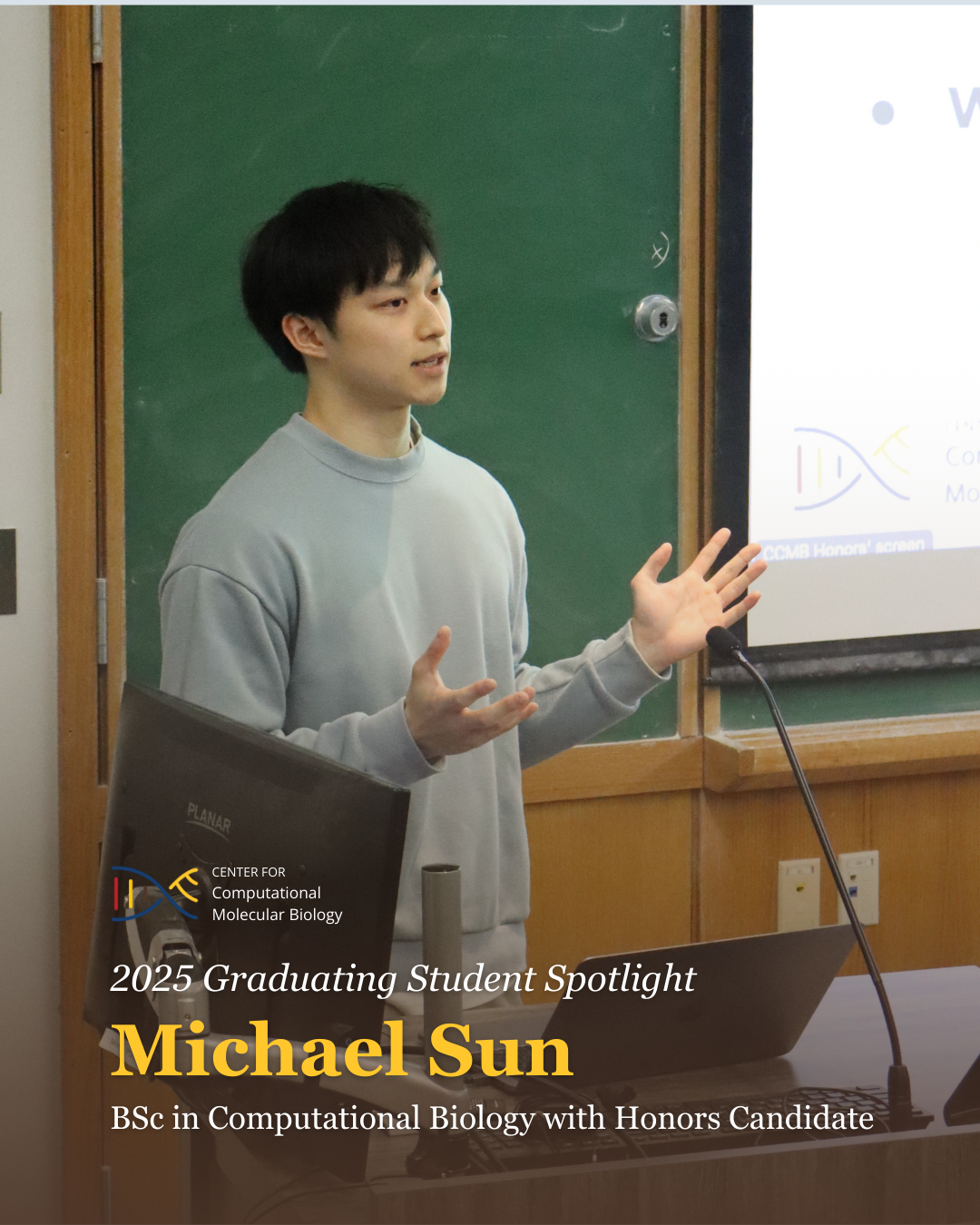 Fields of Interest
Fields of Interest
I'm interested in the healthcare and medicine applications of deep learning and other computational methods.
What drew you to Computational Biology?
I came to Brown hyper focused on a pre-med curriculum, thinking that I would do neuroscience, since I was really interested in medicine and learning about the brain seemed like a good place to start.
Since then, I have branched out a lot more into the world of computation, which I find super fascinating. I took an intro CS class out of pure curiosity and I really liked being able to solve problems using my code and I found that I loved the computational aspects of my homework.
Not wanting to let go of my biological interests, I wanted some aspect of my curriculum to be based in biology/medicine, and being able to model biological processes and aspects of medicine computationally seemed so cool. Computational biology has let me take classes in both of these fields.
What has been your favorite course at Brown?
My favorite course would probably be CSCI 0320: Introduction to Software Engineering. I felt that this was the first class where I have seen that what I do with CS could be limitless. Throughout the course of the class, we built a web app that allowed us to look through data and visualize it on a user interface, essentially showing both the frontend and backend process of building a website. After this class, I built my portfolio website using what I had learned, and I felt that this was a very eye-opening class for me.
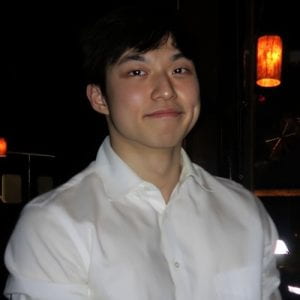
What is your favorite part of being a student at Brown?
Definitely the community. Everyone has been so supportive of my journey, especially the friends and faculty that I have talked to and gotten to know so well over the course of my four years here. I love spending time after class with my friends and being able to do that while being in a very challenging academic environment has been the greatest feeling. We're all here to challenge and push each other and I think that has really brought me to where I am today.
What research and extracurricular experiences have shaped your time at Brown?
The main things I have been involved with during my time at Brown have been (1) research in glioblastoma with the Lawler Lab (2) network biology research with the Uzun lab (3) the Brown University Orchestra as a violinist (4) Brown University Science Olympiad.
With research, I have learned how researchers go through the entire process from conception to experimentation to analysis, and finally draw conclusions. My thesis project has been great, allowing me to combine aspects of both labs that I've worked in together, investigating the recurrence of glioblastoma through a computational lense. This has been one of my first applications of computational modeling in a biological context, so seeing how these subjects complemented each other was a very cool experience.
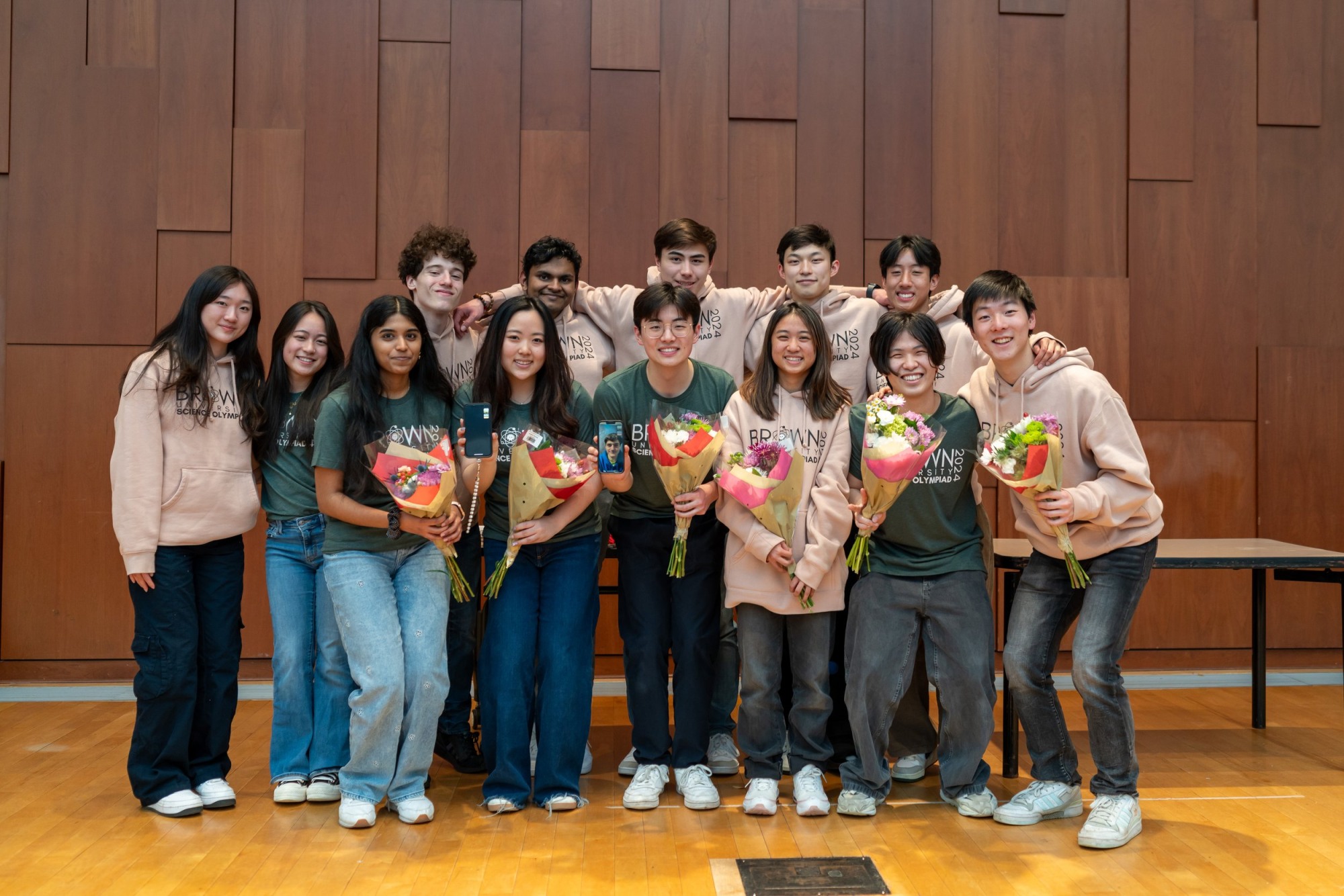
Orchestra has allowed me to continue my love for music, as I spent a lot of my time and energy in high school invested in music and service. Being able to continue this and play with such a talented group of people at Brown has been an amazing experience. In general, these have all proved to me the importance of my community and being able to share my time and experiences with others, which has made my time in college so fruitful and enjoyable.
Who has inspired and mentored you throughout your degree?
I would like to thank my advisor Dr. Alper Uzun for all his time and valuable feedback. I remember I had come to him with this wild idea at the start of my research project, and despite all the challenges along the way, I have learned so much and am so grateful for this experience. His time and insight have been immensely helpful in the scientific process and shaping my thinking in the research world. This has been my first computational project so I had a lot to learn, but I am very fortunate to have someone as knowledgeable, patient and kind as Dr. Uzun.
I also would like to thank Dr. Sean Lawler for introducing me into the world of Glioblastoma. The root of this project stems from my work with Dr. Lawler in the wet lab, and in many ways I am still tied to that work despite my recent work with deep learning and other computational methods. Dr. Lawler's biological insights to this project have fueled my thoughts and directed this project towards something that can hopefully one day help scientists and physicians alike. I am so grateful to have had the honor of working with Dr. Lawler in my time at Brown!
In addition, I am very grateful to my friends for their encouragement and presence throughout my college journey. Their thoughtful check-ins, shared moments of happiness, and unwavering belief in my abilities provided a sense of community and support that helped sustain me during the most challenging periods of this work.
Finally and most importantly, I would like to thank Dad, Mom and Amanda for their support, patience, and unconditional love. Their constant reassurance has served as a foundation I could always rely on. Whether through words of encouragement or simply their steady presence, they reminded me of what truly matters, and for that, I am forever grateful.
What is next for you?
I will be working at the Dana Farber Cancer Institute in Boston as a Clinical Research Coordinator before applying for medical school in the future.
What advice would you give to incoming students?
Take classes that you enjoy, and do what you can to build yourself a strong community and support system that you can rely on, no matter the situation. Also, I've found that I've gotten so much better at putting myself out there, especially with people I don't know and that has opened me up to so many new relationships I never foresaw at the beginning of college.
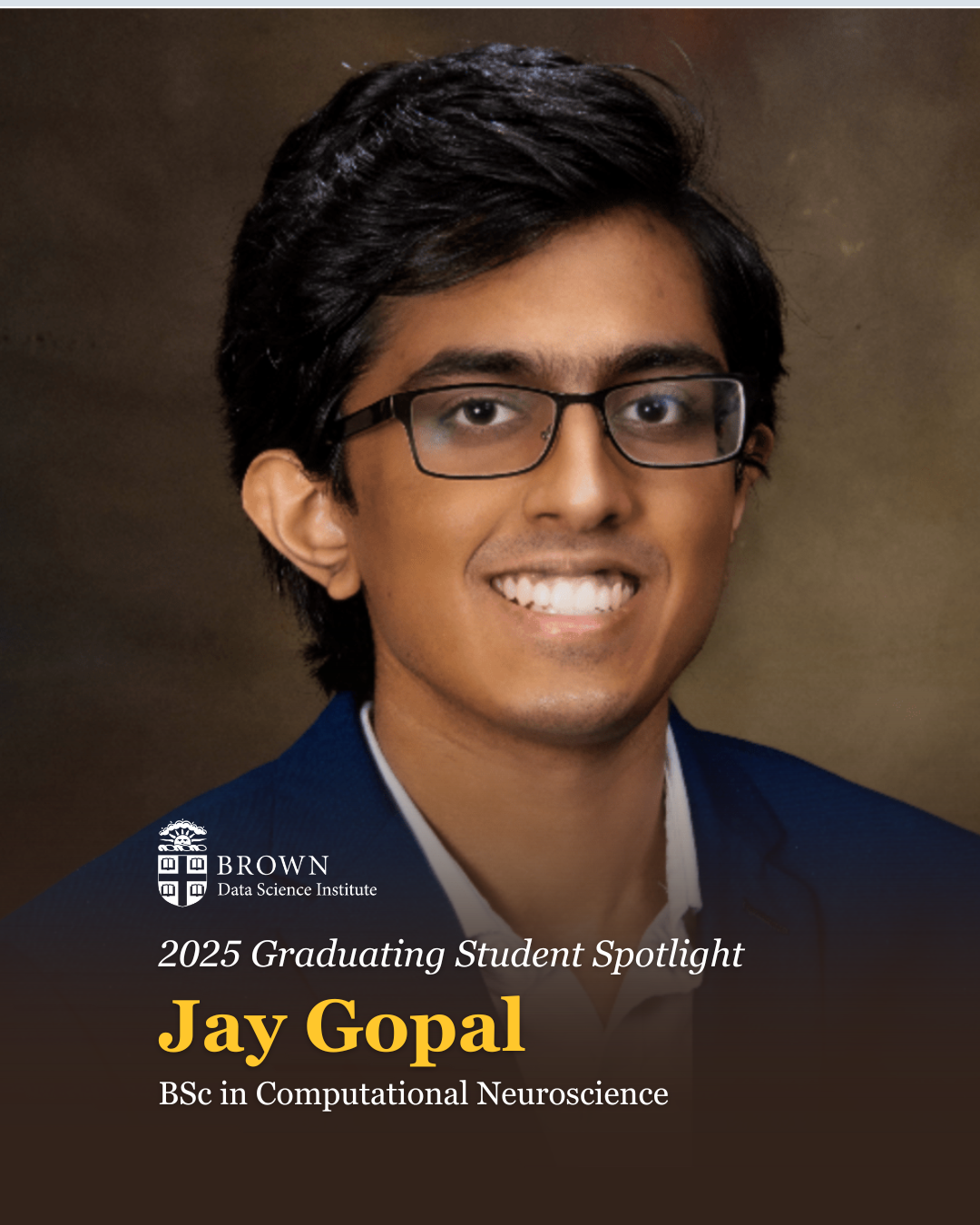 Fields of Interest
Fields of Interest
I am a student in Brown University’s Program in Liberal Medical Education, pursuing a Bachelor of Science in Computational Neuroscience, an independent concentration. This bespoke curriculum allows me to integrate rigorous coursework in computer science and neuroscience with hands-on clinical training, preparing me for the transition to the Warren Alpert Medical School.
My expertise lies at the intersection of explainable artificial intelligence, computer vision, and neurobiology. I was drawn to this field by the realization that biological principles can guide the development of more interpretable and robust machine-learning models. Breakthroughs such as GPT-3’s language capabilities and AlphaFold’s protein predictions convinced me that similar data-driven insights from neuroscience could inform the next generation of AI architectures.
How have your academic interests changed over the course of your time at Brown?
When I enrolled at Brown, I was focused primarily on computer vision and human-in-the-loop AI training, applied to medicine. As I saw the potential of AI in other domains, I expanded into natural language processing, genomics, and cognitive science. This led me to enroll in seminars on genome-based deep learning and courses on the societal dimensions of health care, reflecting a shift from a narrow technical focus to a multidisciplinary approach that leverages AI across biology and medicine.
What has been your favorite course at Brown?
Every course I’ve taken at Brown has been extremely engaging and fun, but I will highlight a few of my favorites. Deep Learning in Genomics with Professor Ritambhara Singh stands out for its seminar-style exploration of landmark papers like DeepChrome and DNABERT, culminating in a team project where we trained our own explainable models to make a tangible contribution to the field. Equally enriching was Deep Learning in Brains, Minds, and Machines with Professor Thomas Serre, which traced the computational steps of human visual recognition alongside their machine learning counterparts. Computer Vision with Professor Srinath Sridhar also solidified my practical skills through projects and lectures on stereo perception, texture analysis, and segmentation.
What has been your favorite part of being a student at Brown?
The collaborative spirit and lifelong friendships I have formed with my fellow undergraduates, graduate students, medical students, and other members of the Brown community have been the most rewarding. Working alongside classmates who are now making investments in healthcare technology, pursuing medical residencies, or developing AI startups has challenged me to elevate my own work. Those shared late-night lab sessions, hackathons, and study groups have taught me more than any lecture alone could.
What research and professional experiences have shaped your academic interests?
Over the past several years I’ve had the privilege of working in multiple of Brown’s research labs, and at a handful of companies, each of which taught me complementary lessons. In the Serre lab, I designed, implemented, and continue to maintain ClickMe v2, a large-scale human-in-the-loop experiment capturing millions of saliency annotations across the entire ImageNet dataset. That project has honed my skills in experimental design, data collection at scale, and the rigorous quality-control measures needed to produce a public dataset. It has also deepened my appreciation for how human judgments can guide more interpretable and robust AI models. Simultaneously, in Professor Ritambhara Singh’s lab focused on computational genomics, I helped build an explainable AI library that explains deep neural networks via counterfactual explanations, and showed its value on real-world genomics data. There, I learned to translate statistical insights into scalable code libraries that biologists can use, ensuring that model predictions come with actionable explanations.
Outside of academia, my AI internship at Kaiser Permanente taught me how to integrate those interpretability techniques into live clinical workflows. I worked alongside physicians to refine a predictive model that identifies high-risk patients. The feedback loops in that environment were immediate and taught me the value of iterative development and clear communication. Looking forward, I will draw on these experiences to advance my medical training as well as my work building up companies.
What has been your biggest challenge while at Brown?
The greatest challenge I’ve faced at Brown has been choosing just a few opportunities from the thousands available, and committing to them for the long term. With so many labs, courses, industry positions, and student-led initiatives at my fingertips, I had to decide where I could make the deepest impact over several years. Once I zeroed in on computational neuroscience research, clinical shadowing, and medical AI entrepreneurship, I immersed myself fully. This meant recruiting thousands of volunteers for ClickMe v2 at the Serre lab to scale the project an order of magnitude beyond what had been done before. It included the development of explainable models for genomic data, and building strategic partnerships through Ainsley Advisory Group and Kyron Medical. That selective focus taught me how to cultivate genuine expertise instead of spreading myself too thin.
What has been your biggest accomplishment?
My proudest accomplishment is weaving two complementary career paths, physician and entrepreneur, into a unified trajectory. On the clinical side, I love shadowing physicians and volunteering at hospitals on a regular basis, and will soon translate those lessons into my rotations at Alpert Medical School. At the same time, I’ve developed AI tools to streamline physician workflows such as denial handling, and advised healthcare leaders on implementing AI solutions that will serve millions over decades. Balancing these parallel pursuits has shown me that I want to dedicate my life to delivering value to patients at the bedside while architecting innovations that endure at global scale.
Who has inspired you throughout your degree? Is there anyone in particular that you’d like to thank, or advisors that you have had a particularly good relationship with?
I am deeply grateful to Professor Thomas Serre, whose mentorship has guided every stage of my thesis work and career planning throughout my time at Brown. I would also like to thank Professors Drew Linsley and Srinath Sridhar for their technical insights and ongoing mentorship, and Professor Ritambhara Singh for being a wonderful research mentor while championing transparent AI in genomics.
What is next for you?
I’m matriculating to the Warren Alpert Medical School this fall, integrating clinical rotations with ongoing AI research. Through Kyron Medical, I’m deploying assistive tools that ease physician burnout from back-office tasks like medical billing. As a partner at Ainsley Advisory Group, I’m advising investors, health systems, and AI startups on developing, implementing, and optimizing emerging technologies. I’m also continuing my work at Stanford to advance personalized medicine by applying computer vision to hospital monitoring and AI-assisted diagnosis.
What advice would you give to incoming students?
Follow your intellectual curiosity across disciplines and proactively seek mentors who share your vision. Use Brown’s open curriculum to design a learning path that combines technical rigor with real-world experience. And remember that every rejection or “no” is an opportunity to refine your approach and move one step closer to success.
Graduate Students
-
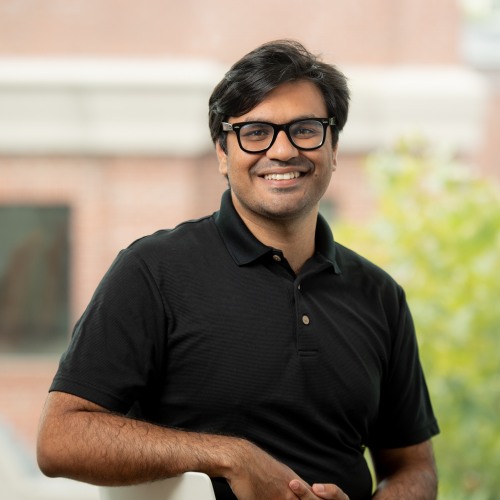
Ghulam Murtaza
Former Graduate Student in Computer Science; Member of the Singh Lab